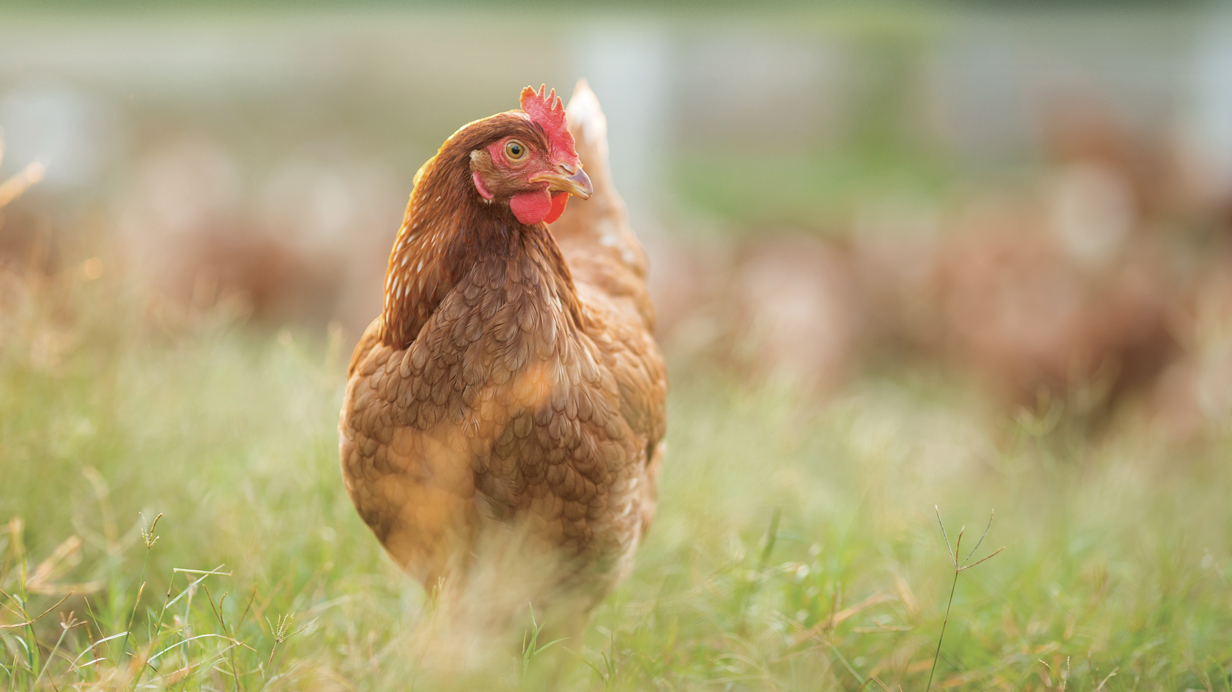How to prevent disease in urban chickens
Disease prevention starts at the hatchery, but there are a number of steps that farmers need to take after that.
Preventive measures at the hatchery will help protect the chicks that you receive. These include:
Eradicating egg-borne pathogens
Building genetic resistance in the chicks
Building chick immunity through maternal antibodies
Farmers are responsible for various measures, including:
Implementing health protections to limit the risk of contamination
Vaccinating the chicks (active immunization)
Eliminating predisposing factors (stress, inappropriate feed, toxins, poor-quality drinking water, etc.)
Best health practices
Remove all feed and bedding from the previous flock. Clean and disinfect the building and equipment. Wait until the equipment and building are dry before introducing another flock.
Clean water pots and other types of waterers daily. Remove any wet or mouldy feed from feeders.
Replace wet or crusty bedding with new bedding to keep the building dry and ammonia levels under control.
If birds have access to an outdoor yard, make sure that it drains well. Standing water is a source of disease transmission.
Best management practices
Following management recommendations will help keep your birds healthy.
Provide your birds with sufficient feeder, waterer, and floor space for their age and breed.
Ensure that temperature and ventilation are adequate. Following the feed program will help keep your birds healthy, growing, and productive.
To prevent the spread of disease, avoid keeping different species of birds, or birds of the same species but of different ages, in the same building. Chicks are susceptible to diseases carried by older birds. Turkeys and other backyard poultry are susceptible to some diseases carried by chickens.
Vaccination program
Vaccines are commonly used to protect chickens, pullets, and layers against Marek’s disease, bronchitis, and Newcastle’s disease.
Birds are vaccinated against Marek’s disease at one day of age in the hatchery and against bronchitis and Newcastle’s disease during rearing at six and 15 weeks of age. Chickens in small flocks may be vaccinated based on the disease history of previous flocks.
The Solu-Mix line
Solu-mix is a natural solution to keep your backyard flocks happy and healthy.
It is an innovative, antibiotic- and GMO- free product approved by Health Canada.
Add it to your birds’ drinking water to improve their comfort during heat stress, support their respiratory health, and maintain their intestinal health.
The active ingredients in Solu-mix are known to:
Regulate the brain’s perception of stress
Reduce stress hormone levels in broilers
Help birds adapt more quickly to their new environment
Reduce aggressive behaviour (pecking)
Improve the comfort of your birds during periods of heat stress
The cinnamon oil in Solu-Mix, rich in cinnamaldehyde, effectively helps maintain intestinal health, and the peppermint oil naturally promotes respiratory health in birds without the use of antibiotics.
Add one teaspoon (5 ml) of Solu-Mix per two litres of fresh water per day on an ongoing basis.


